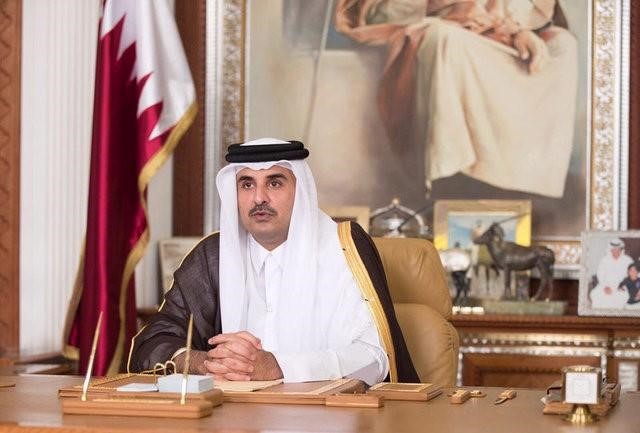Political disagreements don’t ruin amicability. This is how Emir of Qatar Sheikh Tamim bin Hamad Al-Thani summarized Qatar’s crisis in his speech on Friday, and I don’t think that anyone was expecting a surprise in his speech, which expressed the Qatari diplomacy that has been depending for two months on international pursuits and has been avoiding pointing fingers to the problem.
Who would have imagined that the emir speech wouldn’t point out the real reason behind the dispute but would, instead, distance itself from Unfulfilled 2014 Riyadh Agreement, which was signed by Sheikh Tamim.
This is the main trigger of the crisis — this is what has led the region to this place and Qatar to isolation. Briefly, there is an agreement that was signed by Doha and the emir but was unimplemented – Saudi Arabia, UAE, Egypt and Bahrain are demanding that Qatar abides by it.
But directing the speech towards disgrace and calumniation with neglecting the main reason of the crisis is another message from Qatar’s leadership that it has chosen to remain isolated. I assume that this speech intentionally didn’t mention the real reason behind the dispute for a simple reason: Doha can’t deny signing the agreement and can’t claim implementing it.
The emir’s speech intended to deliver two main messages: the first was internal and it urged a permanent enthusiasm as he said: “I call upon all to continue this approach.” The second message was foreign, informing the West that Doha is ready to solve its problems with the former and to alleviate concerns related to funding and backing terrorism.
Speaking justly and away from the media propaganda and Qatari policy, Doha has started the first step on the road whether in the agreement signed with the US to curb terrorism funding or in its approval to send officials from the US Department of Justice to the Public Prosecution in Qatar to pause accusations to funding-terrorism suspects.
This would limit Doha’s previous acts in supporting groups and individuals related to terrorism – according to Reuters, a US official said that arrests were made and scrutiny increased since the beginning of the crisis. He added that Qatari people have taken huge steps, which reveals that the boycotting countries have started to yield.
What matters is that Qatar implements the demands, regardless of the way it chooses to promote its concessions – the four states took diplomatic and economic procedures to oblige Doha to change its terrorism and extremism-supporting policies and Doha could have initially admitted committing to the agreement signed in Riyadh.
But Qatar preferred to seek the harder solution through the US, which means that the crisis period will extend until reaching an exit that fits the propaganda policy adopted by Doha.
As long as Sheikh Tamim avoids putting his finger on the problem and as long as he chooses that the solution comes from the West and not Kuwait – unlike what he said – then Qatar will isolate itself more and will prolong the crisis period.
But, what could be said to a state that considers choosing the longest roads and aborting the shortest to reach the same purpose an achievement and a great victory?
